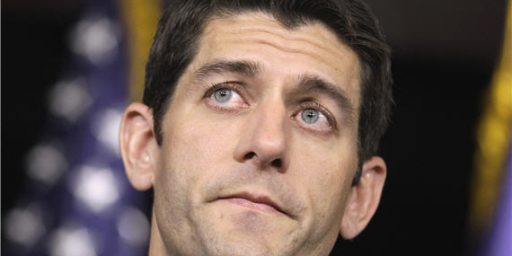9/11 Fund Was a Mistake
Jeff Jacoby, writing in the Boston Globe, explains “Why the 9/11 fund was a mistake.”
THE FUND established by Congress to compensate the families of those who died on Sept. 11 closed its books earlier this year. According to Kenneth Feinberg, the special master appointed to administer the fund, all but a handful of the families eligible to apply for an award did so. All told, 2,878 families received tax-free payments averaging nearly $2.1 million apiece. Payments were also made to another 2,675 people, mostly rescue workers, who were injured that day at Ground Zero or the Pentagon. All told, the government disbursed nearly $7 billion — roughly $1 billion for those who were injured and $6 billion for the families of those who died.
Feinberg, an experienced arbitrator and former chief of staff to Senator Edward Kennedy, has been widely praised for the skill and efficiency with which he administered the fund, and for the sensitivity he brought to the wrenching job of meeting with grieving families and putting a dollar amount to the lives of their loved ones. Those who know him describe him as a man of sincerity, intelligence, and goodwill. So when he says that the federal payout was a “good idea” — as he did during a recent forum at the John F. Kennedy presidential library in Boston — it might seem reasonable to take his word for it.
But the government fund was not a good idea. And Feinberg is too honest not to acknowledge its gaping problems. To begin with, there was the injustice of having the feds bestow multimillion-dollar jackpots on the Sept. 11 families when countless other families struck by tragedy get nothing. Asked at the Boston forum why the death of an employee in the World Trade Center is more deserving of compensation than the death of a hurricane victim in Florida, Feinberg acknowledged that “from the perspective of the victims,” it isn’t. There was no satisfactory way, he confessed, to answer the letters that came from other shattered families. . . .
Indeed. Aside from those for whom the government had a direct responsibility–such as personnel working at the Pentagon who were killed in the attacks–there was no moral obligation for federal taxpayers to compensate these people for their loses. Families of firefighters and police officers who died should have been taken care of under the normal rules that prevail when they die on duty at any other time. Those working for private firms, whether as CPAs at the World Trade Center or as pilots for United Airlines, should have been covered in exactly the same way they would have had they died on the job any other way.
Awards from the federal compensation fund were reduced by the amount of any insurance proceeds the families received (in effect punishing the relatives of victims who had been responsible enough to plan ahead). Yet they were not reduced to offset any charity the survivors collected. Which meant, in many cases, that the government ended up paying a fortune to people who had already collected a fortune from private donors. USA Today reported in 2002 that relatives of New York police officers received an average of $929,000 in charitable funds. The families of firefighters and ambulance crews got $1,037,000. Those gifts, too, were tax-free.
An estimated $2.8 billion was donated by millions of Americans following the 9/11 attacks. Billions more came pouring in as in-kind goods and services — everything from food and air travel to financial planning and slots at children’s camps. Well before Congress created the federal compensation fund, individual donors and private charities were stepping up to the plate, demonstrating their compassion with the extraordinary generosity that is so often the hallmark of ordinary Americans. There was no reason for the government to get involved.
Indeed, it was morally wrong to pay some of the victims’ families with taxpayer money but not others. Punishing families whose loved one had made responsible use of their money by providing insurance coverage is simply outrageous.






Unfortunately this is so true. It is a sensitive topic because one would likely be accused of being insensitive for bringing it up.
The tragedy lottery mentality will be hard to remove from the list of entitlements now. Didn’t some OK City victims press up to the trough after 9/11 for a share?
I remember Rush discussing this also sometime back.
I was thinking the same thing as the latest hurricane hit Florida. And it goes beyond the 9/11 fund. People will get new homes built there using Federal money. If a flood happens here (SE Texas), neither the government nor my insurance will help me out.
(I’m not complaining…I’m thankful I don’t live in Florida…It is just an interesting dilemma, one which is usually solved by the government providing said services to everyone rather than cut back on anything.)